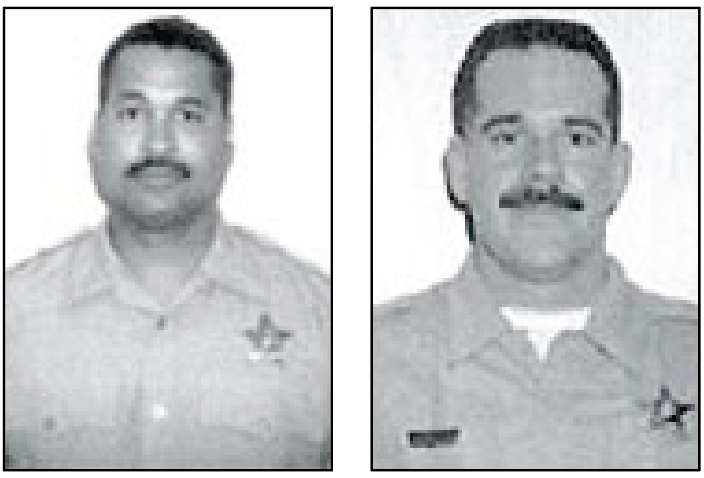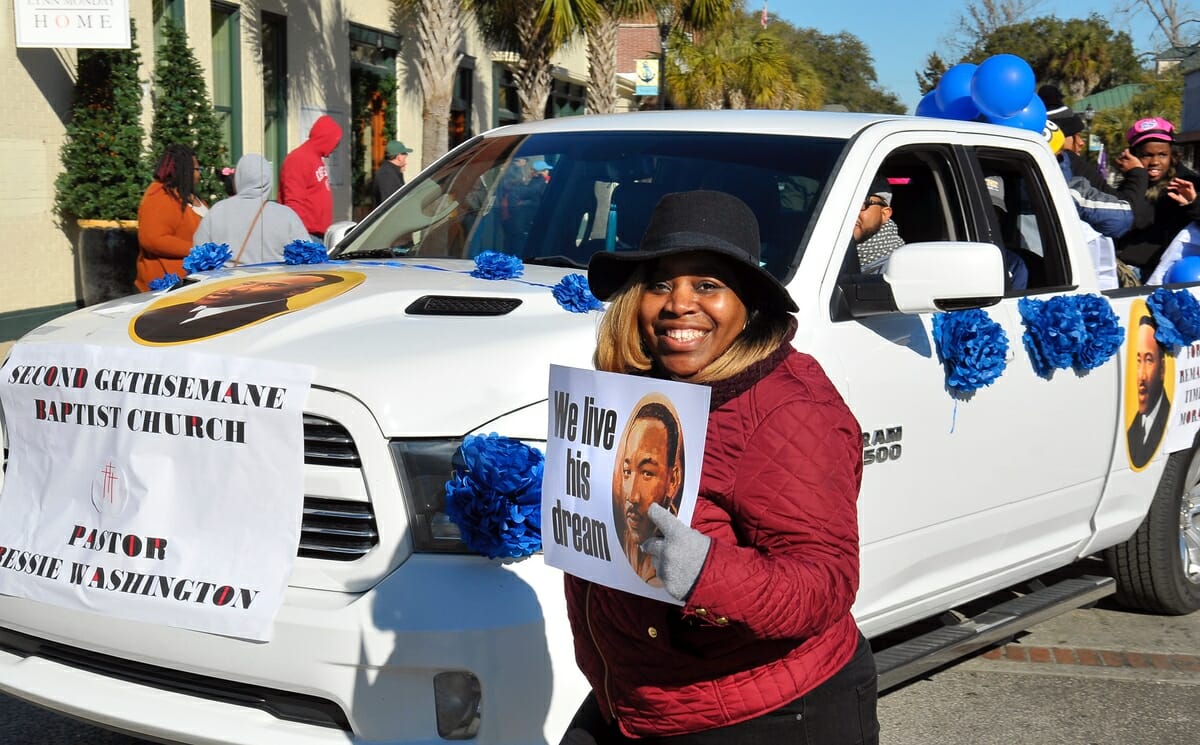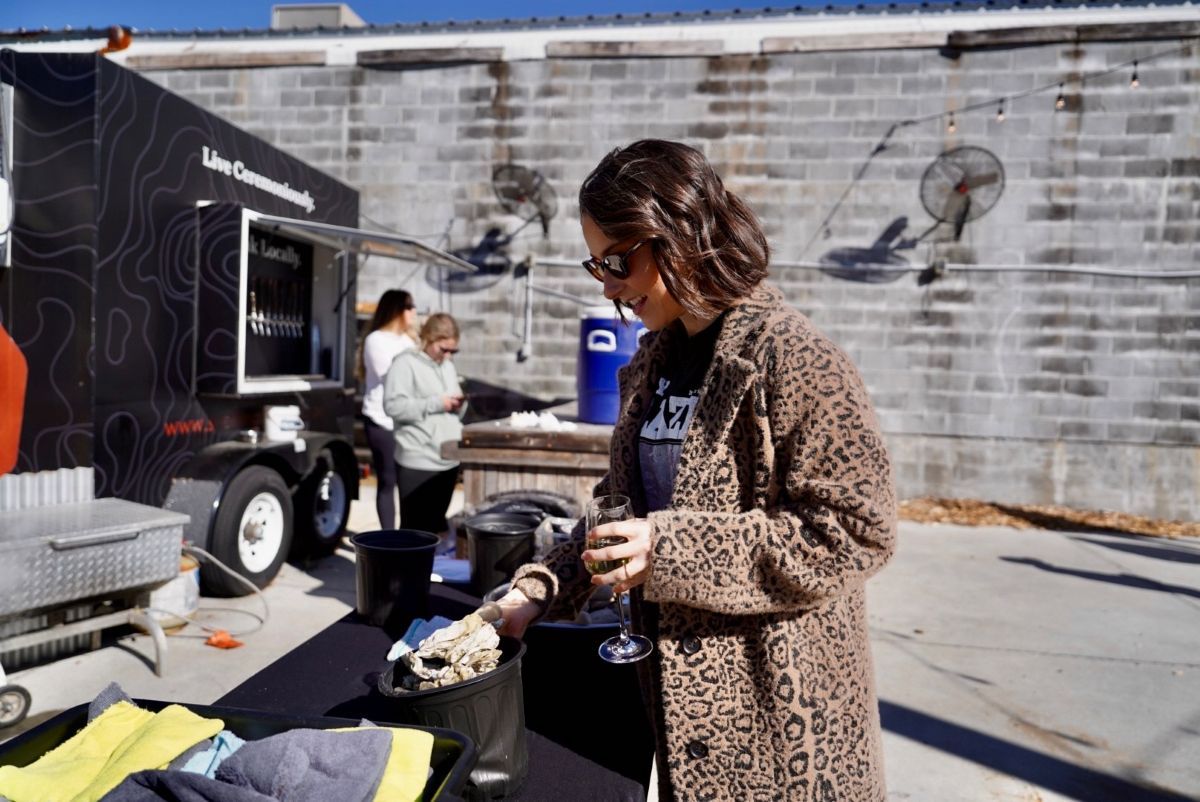By Sally Mahan

Sixteen years ago this month, two Beaufort County Sheriff’s deputies responded to a 911 call in Burton. It was the last call the two would answer.
Lance Cpl. Dana Tate, 44, and Cpl. Dyke “A.J.” Coursen, 35, were shot to death by Tyree Roberts, on Jan. 8, 2002.
Coursen had been with the Beaufort County Sheriff’s Department for one year. He left behind his wife, D.J., son, and stepdaughter.
Tate was a U.S. Navy veteran and had been with the department for over four years. He also left behind a family, including his wife, Marie.
Meanwhile, the defendant, who now goes by the name Abdiyyah ben Alkebulanyahh, continues to sit on death row at Kirkland Correctional Institute in Columbia, having recently filed another appeal, according to the SC Attorney General’s Office.
On the fateful day, a 911 came in at about 4 p.m. saying a woman and her child were being held against their will by the woman’s boyfriend.
According to various court records, Roberts lived in a trailer at 21 Riley Road owned by Brenda Smith. Another woman, Kimberly Blake, with whom Roberts had an infant daughter, was also staying there. Blake wanted the police to help her leave because Roberts had hit her.
When the deputies arrived, Roberts hid in a bedroom closet with his semi-automatic rifle. Blake left the room and the trailer’s owner, Smith, gave the deputies permission to search the bedroom.
Then there was a hail of gunshots.
Blake ran outside and down the road, and Roberts was not far behind. Holding his gun, he told Blake, “I just killed those two white bitches and I’m going to say it was self-defense.”
When backup officers responded to the scene, they found Coursen and Tate dead. Coursen had suffered six gunshot wounds; Tate had seven. However, Tate was able to wound Roberts before he died.
A short time later, Roberts was found hiding in the mud under a bridge with a shoulder and hip wound. At the time, he had a black fanny pack which held a cell phone, a knife and ammunition for an M-14 assault rifle. They then found a rifle magazine and an SKS assault rifle in the area in which Roberts had ran.
Roberts was charged with capital murder.
At his 2003 trial, he represented himself, but two lawyers were there to assist him.

While the jury was deliberating, Roberts told the judge that if the jury returned a guilty verdict, he would not participate at the sentencing. He also said he would be unruly and would have to be restrained.
After 13 days of testimony, the jury took one hour to convict Roberts of two counts of murder.
The judge decided that the best way to proceed during sentencing was with Roberts in the courtroom.
Roberts told the judge that the lawyers were not representing him in any way, but ultimately decided they could remain as stand-by counsel to object to the introduction of improper evidence.
At the sentencing, as soon as the first witness was sworn in, Roberts stood up and began to chant, “Blessed be Yahweh, El Shaddai, Jehova, God Almighty, the God of Abraham, Isaac, Ishmael, Jacob and Jesus.”
He was told by the court to be seated, and when he continued chanting, he was removed. He was then brought back into the courtroom and once again began chanting when a witness began to testify.
The jury was removed, and Roberts was placed in a conference room at the back of the courtroom that had a glass partition to allow him to hear and see the proceedings. He was initially restrained, but the restraints were removed before the jury was returned to the courtroom.
Throughout sentencing, the judge offered to allow Roberts to come back into the courtroom if he could do so without being disruptive; however, Roberts said he would rather remain in the back room. He only returned to make a closing statement to the jury. According to various media reports, before the sentencing he said, “I regret and have a lot of sorrow for what has taken place in my home. There is nothing I can do to bring back their lives.”
Addressing the families, Roberts said, “I did not hate your husbands. I did not hate authority. I hate the situation that led them to my home. It was bogus. It was false and I’m sorry to the wives and to the children. Especially to the children.”
The families said at the time that Roberts did not seem remorseful despite the apology.
The jury was then charged with recommending a sentence. After 45 minutes of deliberations, the eight women and four men recommended death.
Roberts, who had a record of two armed robberies and other crimes before the murders, has based his appeals on several issues, including one appeal in 2006 that argued that the court erred in refusing Roberts’ request to be completely absent from sentencing. The appeals court turned down that argument.
Roberts, who is now 55, recently filed an appeal stating that he had “ineffective counsel,” according Robert Kittle, spokesperson for the SC Attorney General’s Office.
“It’s just part of going through the appeals process,” said Kittle.
That appeal is pending.
During his time on death row, Roberts has lost various privileges for prison violations. In 2009 and in 2010 he “threatened to inflict harm on an employee,” according to the SC Department of Corrections.
Meanwhile, the families live with the knowledge that their loved ones were killed for doing their duty.
At the sentencing phase of the trial, Tate’s wife, Marie, testified that on that day her husband “hugged me, kissed me and said, ‘See ya later.’ My husband told me his No. 1 job was to get back home to me.”






